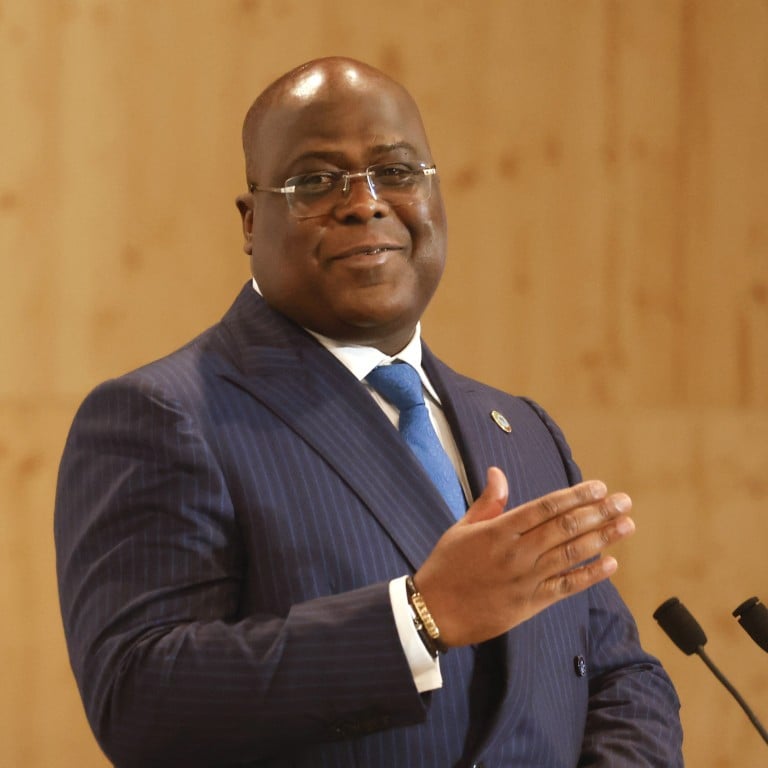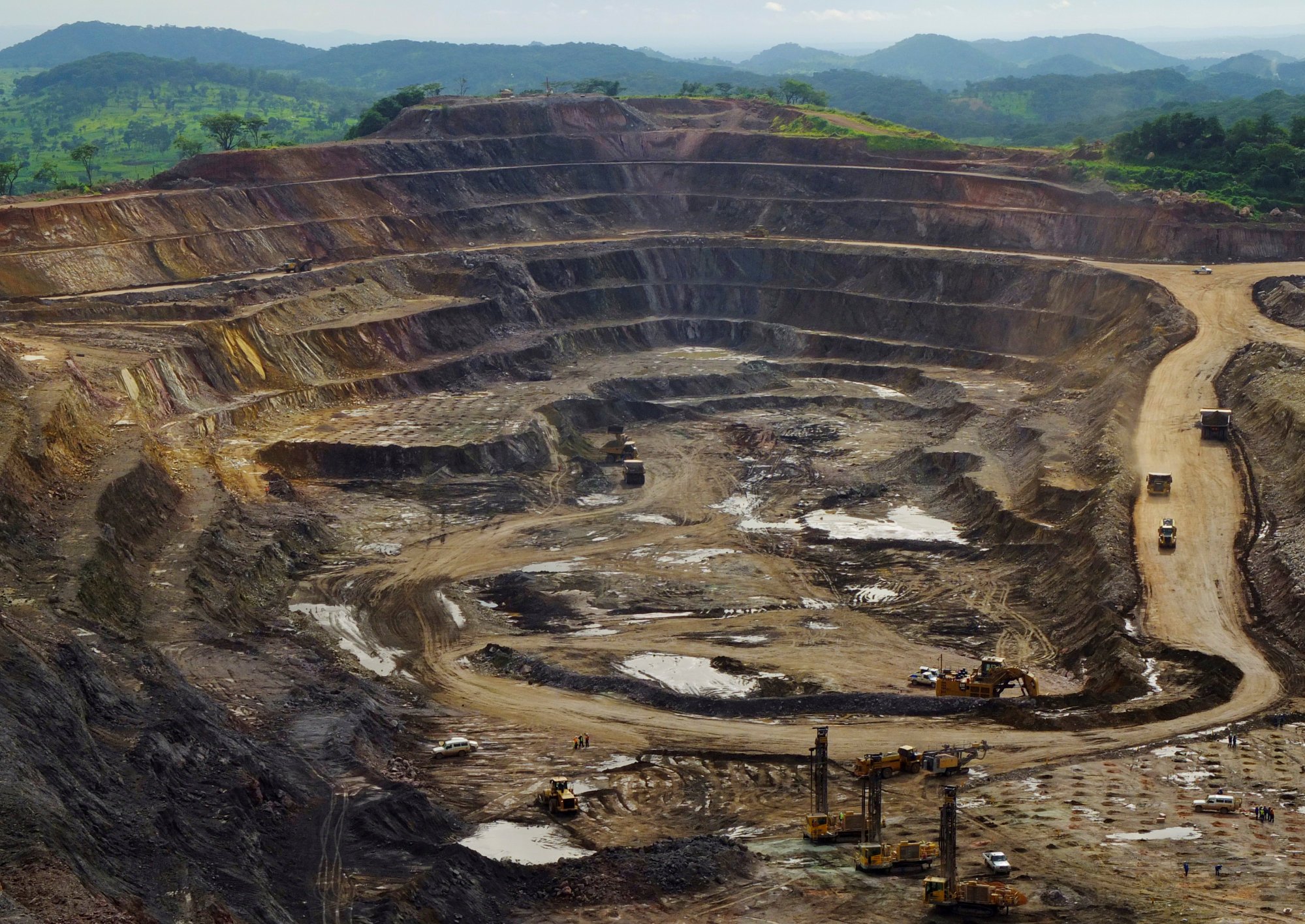
Relief as Chinese firm reaches royalty deal on Congo cobalt mine, but stockpile sparks price fears
- CMOC’s dispute with Congo’s state-owned Gecamines involved accusations of under-reporting reserves at Tenke Fungurume, the world’s No 2 cobalt mine
- Deal puts to rest dispute dubbed ‘poster child for the beginning of the end for Chinese miners’ in Congo, analyst says
Shares in CMOC, which is listed on both the Hong Kong and Shanghai stock exchanges, surged on the news that it had settled the 10-month dispute with state-owned Gecamines over royalties from its giant Tenke Fungurume copper and cobalt mine.
But the deal is also expected to free up thousands of tonnes of stockpiled cobalt, with analysts warning of prices being driven even lower for the metal.
In a statement posted on its website last week, CMOC said it had reached a “win-win” consensus with Gecamines on the Tenke royalties issue, but did not reveal the specific terms of the agreement.
Is Chinese mining joint venture becoming a political pawn in Congo?
“This is the result of candid communication and friendly consultations … and a ‘win-win’ after taking into consideration the short-term interests and long-term development of the relationship between both parties,” CMOC said in Wednesday’s statement, which saw its share price jump by the daily limit of 10 per cent in Shanghai.
According to Congolese mining analyst Christian-Geraud Neema, the deal put to rest a dispute dubbed as “the poster child for the beginning of the end for Chinese miners in the Democratic Republic of the Congo”.
Gecamines, a Congolese state-owned commodity trading and mining company, has a 20 per cent stake in Tenke, the world’s second-largest cobalt mine. CMOC owns the other 80 per cent.
The two companies had been at loggerheads since 2021 after Congolese officials accused CMOC of under-reporting copper and cobalt reserves to reduce royalty payments, and established a commission to reassess them.
There was also complex politics involved, with the offices of Prime Minister Jean-Michel Sama Lukonde and President Félix Tshisekedi jostling to lead the contract review, as the latter sought to boost his re-election prospects later this year.
Observers also said the United States could have been the invisible hand pushing Tshisekedi to revise previous deals with China – Washington’s main geopolitical rival.
Chinese firm hits hurdle in row over Congolese mine
In February last year, Tenke was placed under administrative control by a local commercial court over Gecamines’ complaints that it was not getting its fair share.
Exports from the mine were also suspended in July by a court-appointed administrator until shareholders agreed on a new sales contractor.
CMOC, formerly known as China Molybdenum, meanwhile continued mining at Tenke.
The mine, which generally produces about 1,500 tonnes of cobalt and 20,000 tonnes of copper each month, has since built up a stockpile of at least 16,000 tonnes of cobalt hydroxide.

According to Benchmark Mineral Intelligence, with the dispute resolved, this material can now enter the global market, potentially putting downward pressure on the already low prices for cobalt, an essential component of electric vehicle batteries and electronics.
“If prices continue to fall, this could push high-cost producers out of the market,” the London-based pricing agency said, adding that this quantity of cobalt would take at least a year to clear.
Cobalt prices have already dropped 75 per cent from a three-year high last April as demand weakens.
Reasons pushing the market down included “the relaxation of logistics issues, weak consumer electronic sales and a technology shift towards lower or no cobalt EV batteries”, the Financial Times quoted Caspar Rawles, chief data officer at Benchmark, as saying last month.
The United States has also been eyeing African cobalt reserves to power its electric cars and military equipment.

Congo is by far the world’s largest exporter of cobalt, accounting for about 70 per cent of global production and supplying China with 60 per cent of its cobalt needs, while Zambia is rich in both copper and cobalt. Chinese companies have made massive investments in both countries.
The estimated 16,000 tonnes of cobalt hydroxide stockpile at Tenke accounts for about 8 per cent of the global yearly supply, according to Benchmark.
“Unleashing this [Tenke] stockpile is likely to exacerbate the already weak supply-demand balance,” Benchmark pricing analyst Roman Aubry said.
“We would expect that there has been a resolution between Gecamines and CMOC on the resource available within the mine; however, how this impacts the royalties payable to the Democratic Republic of the Congo remains to be seen.”
Further price erosion is likely as suppliers rush to offload stock before CMOC fully resumes exports, Aubry said.
“Current hydroxide prices are low enough that even middle-tier producers are making little to no margins, and a further drop may signal trouble for all but the largest suppliers like [Swiss giant] Glencore and CMOC, who are able to take advantage of other revenue streams that aren’t accessible to smaller companies.”
The troubles for CMOC began in June 2021, when Tshisekedi vowed to review deals that he said were skewed in favour of foreign mining companies and denied the Congolese people their fair share of benefits.
‘My country did not get anything’: ex-DRC leader slams China mining deal
Another contract under review is the Sicomines joint venture, a US$6 billion minerals-for-infrastructure deal signed more than a decade ago under then president Joseph Kabila regime and described as poorly negotiated by Tshisekedi.
Gecamines formed the joint venture with a consortium of Chinese companies led by Sinohydro and China Railway Group, to trade infrastructure such as roads and hospitals for copper and cobalt – with the Chinese side taking a 68 per cent stake.
The Chinese companies agreed to invest US$3 billion in Congolese infrastructure and another US$3 billion to develop a copper and cobalt mine.
But in February, Congo’s state auditor released a report saying the country had not been adequately compensated for the copper and cobalt reserves it had contributed to the deal, demanding an additional US$17 billion in Chinese investments and expansion of Gecamines’ current 32 per cent Sicomine stake.
The two disputes had strained bilateral ties with Beijing, but the situation might ease with Tshisekedi reportedly preparing to visit China in May, according to Jeune Afrique, a French-language pan-African weekly news magazine.
Neema at the China Global South Project said both Congolese authorities and the Chinese had expressed their willingness to resolve both disputes.
“There has never been a real willingness to break these agreements, so there’s hope for the Sicomines dispute to be resolved,” he said.
“The Chinese have demonstrated their ability to manoeuvre complex and difficult environments … The CMOC has put an end to a dispute that had long been dubbed a poster child for the beginning of the end for Chinese miners in the Democratic Republic of the Congo.
“It will also bring a sense of calm within the Chinese mining companies that the government is not on a witch hunt against them.”
However, the Sicomines issue is more political in nature, according to Neema. “The Sicomines deal might require a bit of time, as it depends more on Congo’s political agenda.”
Tshisekedi will seek re-election in December, and observers say his government has been stepping up pressure on Sicomines to force a renegotiation of the 2008 deal as part of a plan to use the infrastructure projects as a campaign tool.

